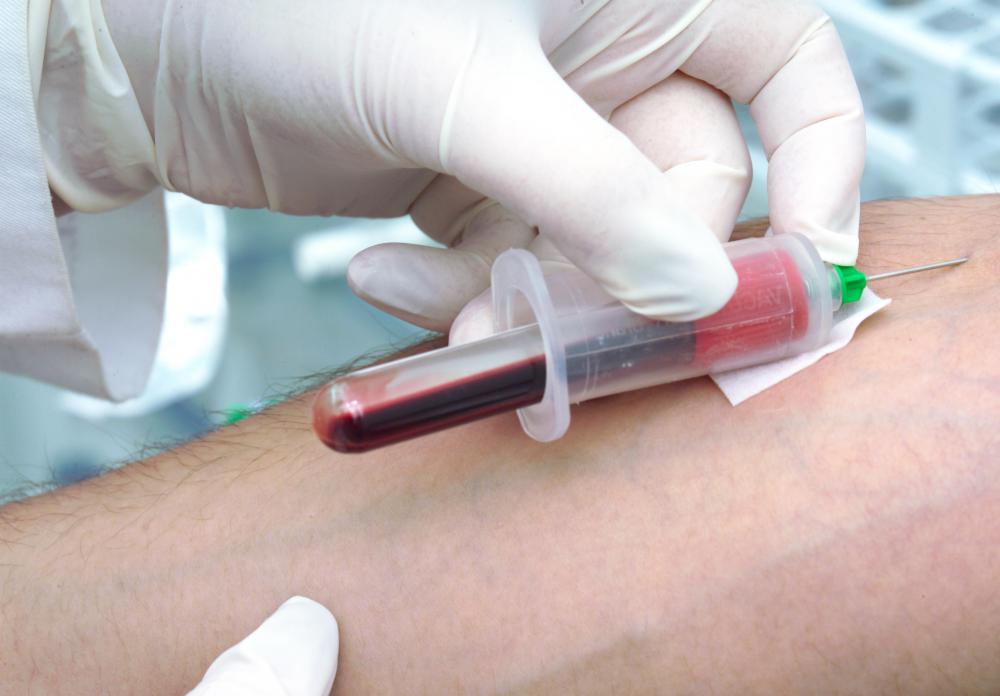At TheHealthBoard, we're committed to delivering accurate, trustworthy information. Our expert-authored content is rigorously fact-checked and sourced from credible authorities. Discover how we uphold the highest standards in providing you with reliable knowledge.
What Is a Therapeutic INR?
A therapeutic INR refers to the correct state of clotting of the blood. INR stands for International Normalized Ratio, which is a test that is done on the blood to measure how “thick” or “thin” it is, or how easily it clots. This is an important measure in people taking anticoagulants, or blood-thinning medication, such as those with prosthetic valves or a history of stroke or deep vein thrombosis (DVT), also referred to as a clot.
After having a stroke or clot, there is a real concern for recurrence. For this reason, anticoagulant medication, such as warfarin, may be prescribed, often long-term, to prevent such a recurrence. Dosing of warfarin can be difficult, however, as different people react differently to anticoagulant medications. A therapeutic dose for one person may be completely different to the dose needed to attain a therapeutic INR in another.

Normal INR, in a person not needing anticoagulants, is usually around 1. In people requiring anti-coagulation, a therapeutic INR is usually between 2 and 3. This may differ, however, depending on why anti-coagulation is needed. Having an above normal INR may result in bleeding or hemorrhage and too low an INR may increase the risk of clotting or strokes.

When first initiating treatment with an anticoagulant, the prescribing doctor will monitor the INR every couple of days and adjust the dose accordingly until the therapeutic INR is reached. Regular INRs will be performed throughout treatment to ensure that the therapeutic INR is maintained, usually two-weekly and then monthly, once therapeutic INR is obtained. The INR is a simple blood test performed by the lab requiring the drawing up of a small amount of blood. Results are usually obtained on the same day.

Many factors may influence the INR which necessitates this regular monitoring. These include other medications, clinical conditions, both acute and chronic, and some foods. Many medications, such as non-steroidal drugs like aspirin, cough and cold preparations and some antibiotics may affect warfarin. It is very important that a person on warfarin discusses other medications with the doctor before starting, stopping or changing the dose. This includes over-the-counter, homeopathic and complementary medications.

Foods may also influence warfarin and therefore affect INR. These include dark leafy vegetables like spinach, avocado pears and ice cream. Alcohol may also affect the INR. When starting anticoagulant therapy the possible food interactions should be discussed with the prescribing doctor to ensure that therapeutic INR is maintained.
AS FEATURED ON:
AS FEATURED ON:
















Discuss this Article
Post your comments